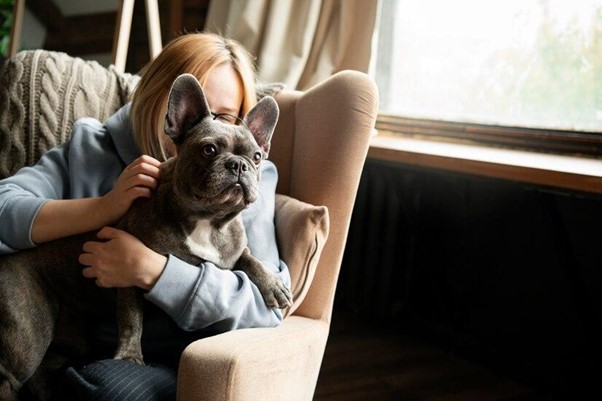The journey of addiction recovery is undeniably challenging. Finding sources of support and stability can be the difference between success and relapse. One often underestimated source of strength in this battle is the presence of pets. These loyal companions offer much more than just unconditional love and companionship. This Puppy Education article explores the profound and often unexpected ways in which caring for a pet can play a pivotal role in aiding individuals on their path to recovery.
Establishing Routine and Responsibility
A sense of chaos and uncertainty often marks the early stages of recovery. Establishing a daily routine is a cornerstone of successful recovery, stabilizing a person’s life. Caring for a pet demands consistency and responsibility, which can help individuals regain a sense of structure. The daily rituals of feeding, exercising, and providing for their pets become anchors that keep them on track, reinforcing the importance of regularity and reliability.

Seeking Inpatient Treatment
Relapse is unfortunate for many individuals on the road to recovery. When faced with a relapse, it’s crucial to consider seeking inpatient treatment at US rehab centers. While the cost may be a concern, most treatment centers accept health insurance, so it’s accessible for those in need.
Ask your insurance provider if your coverage includes rehabilitation services. When selecting an inpatient facility, you must consider accommodations, location, patient reviews, accreditations, and other factors to find the best fit for your needs.
Elevating Mood and Alleviating Symptoms
Depression and anxiety often accompany addiction recovery, making the journey even more challenging. Pets have a remarkable ability to elevate mood and alleviate these debilitating symptoms. The simple act of petting a dog or playing with a cat can release endorphins, those feel-good hormones that can help individuals combat the emotional challenges they face. The comfort and solace that pets provide during these difficult moments are invaluable.
Diverting Attention from Cravings
Addiction recovery is a daily battle against cravings and addictive thoughts. Here, pets play a crucial role. Focusing on pet care and companionship can effectively divert attention away from these harmful urges. Engaging with your pet in positive ways provides a healthy distraction, reducing the risk of relapse. The responsibility of pet ownership keeps individuals grounded in the present moment, offering a constructive way to occupy their thoughts and time.
Encouraging Socialization
Isolation is a common struggle for those in recovery, but owning a pet can change that. Pet ownership often leads to interactions with other pet owners, creating a supportive community. These connections can be a lifeline during recovery, offering understanding and empathy from those who share a similar bond with their furry companions. Socialization with others who understand the challenges of recovery can boost morale and provide a network of like-minded individuals.
Instilling a Sense of Purpose and Self-Worth
One of the most profound benefits of pet ownership is its ability to instill a sense of purpose and self-worth. Successfully caring for a pet can boost self-esteem and self-confidence, reinforcing a positive self-image. This newfound sense of responsibility and accomplishment can drive an individual’s determination to rebuild their life. It’s a reminder that they can care for and positively impact another living being.
In the pursuit of addiction recovery, the role of pets cannot be underestimated. Their ability to establish routines, alleviate symptoms, divert attention, and more. If you or someone you know is on the path to recovery, consider the profound impact a furry friend can have. They may just be the support system you need to overcome addiction and lead a fulfilling life. Embrace pets’ healing power as you navigate toward a brighter, healthier future.
Leave a Reply
You must be logged in to post a comment.